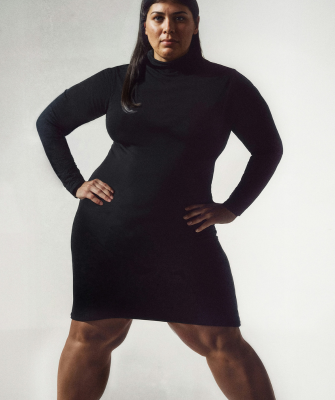
Are Women Happier After Divorce?
Divorce is always a topic that comes with a lot of emotional baggage and societal judgments — especially for women. And if you landed on this page, you might be thinking about divorce or just beginning the process (stay strong!). In either case, it is natural to wonder about the future and its unpredictability. You might wonder, “Will I ever be happy after divorce, or am I kidding myself?” These fears and self-doubt are par for the course and part of the emotional journey. It’s normal and OKAY to feel uncertain about what will happen next. After all, chances are you’ve never been here before.
But, what would you say if I told you that in general, women are happier after their divorce?
Would you tell me, that’s just too good to be true?
Well, keep reading.
Getting Real: Are Women Happier After Divorce?
We might have suspected this earlier, but now, science backs this up.
A 2013 study by the University of London found that most women are more content after their divorces, even when measured against their personal, baseline levels throughout their lives.
The researchers surveyed 10,00 people between the ages of sixteen and sixty for two decades. They found that despite all the financial constraints, women reported more satisfaction and happiness after the divorce. More interestingly, their happiness lasts up to five years after the marriage ends.
Let us acknowledge that this was one study and not all women were or are happier after divorce. For some, the divorce, or what was wrought by the divorce, are pains they are still navigating or may never get over. For those suffering from an unwanted divorce and in need of feeling less alone, we might direct you to this piece, “How to Get Over a Breakup When You Feel Abandoned.” For this article, we will focus on the statistics from the study and one personal story.
So, comparatively speaking, what makes women more satisfied with their lives and happier after divorce? Why do women handle divorce better? Lean into this and learn why.
Feeling of Independence
First and foremost, everyone wants to work on their terms and be independent. And ending a bad marriage can give women a sigh of relief. This newfound freedom may also make them feel like they are no longer walking on eggshells or answerable to anyone about their actions. It’s a rediscovery of self.
Better Adaptation
While women are not emotionally stronger than men, they are happier after divorce because they deal with their emotional trauma differently. The study found that these differences in adaptation allowed women to recover and even flourish after divorce, but men had a tougher time doing so.
You may be interested in reading, “The Sweetness of Living Alone After Divorce.”
Empathy from Friends and Family
Even though women are up to 69% more probable to file for divorce compared to 31% of men, women are still likelier to get more empathy and social support from friends and family.
This may be because women are more open about their emotions and seek help from friends and family when facing challenges. This accelerates their healing and contributes to their understanding of what happiness might truly mean to them.
Better Social Connections
Divorce can change the social dynamics for women, often for the better. It means less caregiving to spouses. Women get back to their old friendships, and what’s more, they meet new people and resume or start to enjoy all those activities they might have had no time for when they were married.
This social network and positive loop cycle make them happy, encourage them, and help build social support that strengthens positivity and growth. Connecting to others, and getting involved in new activities can also create opportunities for new romantic interests. Although at SAS for Women, we know many women who have decentered men from their lives after divorce. They are not interested in “the Other” so much as they are committed to investing in and discovering themselves.
Seeing a Therapist After Divorce
When it comes to support, the same study found that women are more likely to seek support and therapy for emotional trauma than men are. Because they are more likely to seek help, they aim to acknowledge and deal with their emotions and find the best coping strategies to move forward. As a result of seeking help and learning about themselves, women are often more content with their decisions.
How Happy Are Men After Divorce?
In the same research, men were also found to be slightly happier after divorce, but the happiness boost was much less than that of women. The difference in the happiness levels could be due to varying factors.
The research mentions that women seek mental and emotional support from friends, family, and professionals. Men, on the other hand, usually isolate themselves and bottle up their emotions.
Because of the social stigma of being the tougher gender, some men may hesitate to seek help from a support group or a therapist or psychologist. Reaching out, they may believe, is a sign of weakness.
Not only this, but men are also likely to turn to unhealthy ways to cope with their emotions, such as drinking, early dating, casual sex, and doing drugs to escape the emotional pain. Research has documented that men are more prone to substance abuse post-divorce than women. These factors if happening, can prolong suffering and the process of grief instead of helping them.
And get ready for this phenomenon by reading …. “Why is My Ex Remarried Already?”
But What Does “Happier After Divorce” Look Like?
Moving beyond statistics, I’d like to tell you about my sister and her experience with rebuilding her life after a divorce. When she decided to end her marriage, she found it very tough. She had married at a young age, and throughout, had tried her best to honor the marriage and her spouse. But she decided to call it quits when she didn’t experience the same commitment from her partner.
After the divorce, and as time passed, she understood that this hard decision was the best thing she had done for herself – even though she had been racked with fear and apprehension before committing to the path.
Today, she often speaks about how her marriage was just a gendered role, and she was just being labeled “a wife.” Her husband was cheating on her, moved in with another woman, and left her to handle the financial responsibilities of home and family. She could not take care of her physical and mental health because of what she was dealing with 24-seven.
But, since the separation, and then moving through to the other side of divorce, my sister has attained some peace, she tells me. She’s reconnected with herself instead of dealing with the old, constant drama. She feels great, has joined a gym, eats healthier, does things that bring her joy and embraces life. She wants you, dear Reader, to know…
“For me, this is a new chapter and a new beginning. I am slowly returning to my joyful self. I smile much more now and feel the radiant energy inside me.”
Conclusion
While people have different experiences as they emerge from divorce, compared to men, women are found to be happier. There are diverse reasons, but among them is a common thread of life “feeling better” and “feeling freer” for women. Perhaps because women experienced so much caregiving, and with it, the sacrificing of self in that first chapter, when women find themselves (literally) after divorce, it’s like meeting an old friend.
Familiar but mysterious too. There is much catching up to be done.
NOTES
Aimen Sohail is a doctor by profession but is passionate about about women’s mental health. She has written for numerous websites offering insights about women’s emotional and mental well-being. She advocates for women’s rights in her community and tries to amplify their voices, making the world a better place for everybody.
Since 2012, SAS for Women has been entirely dedicated to the unexpected challenges women face while considering a divorce and navigating the divorce experience and its confusing afterward.
SAS offers women six FREE months of email coaching, action plans, checklists, and support strategies for you, and your future. All of it is delivered discreetly to your inbox.
Join our tribe and stay connected.
*SAS continues to support same-sex and nonbinary marriage. In this article, however, we refer to your spouse as husband/he/him.
Tags:
2 responses to “Are Women Happier After Divorce?”
-
Sad to say that this article is female centric and generally promotes divorce. The evidence is anecdotal. Obviously, there is no place for outright abuse in any marriage, as depicted in the author’s sister’s experience involving infidelity, which was horrible.
No where does the article promote patient reconciliation even if the end result is divorce.
It quite simple: marriage and divorce are opposite. Divorce correctly means that the marriage failed and needs to be killed. There is supposed to be natural healthy and rightful shame and sadness that goes with the failure of marriage that ends in divorce. But now we have articles like these that unwittingly promote the lucrative divorce industry and the destruction of the family and the generation that is to follow.-
Thanks for writing, Newtral — if indeed that is your name. Take a look at the blog post and the website “SAS for Women”.
Indeed we are female-centric and we are divorce coaches dedicated to helping women feel empowered to make decisions for themselves.
-







Leave a comment or thought.
We`d love to hear what you are thinking after reading this post.